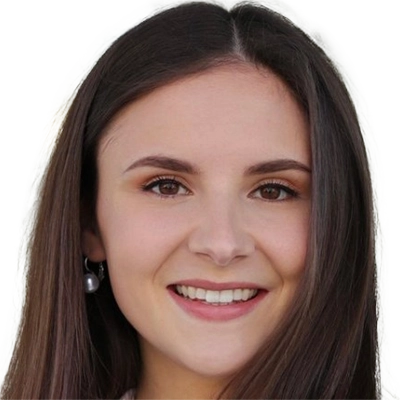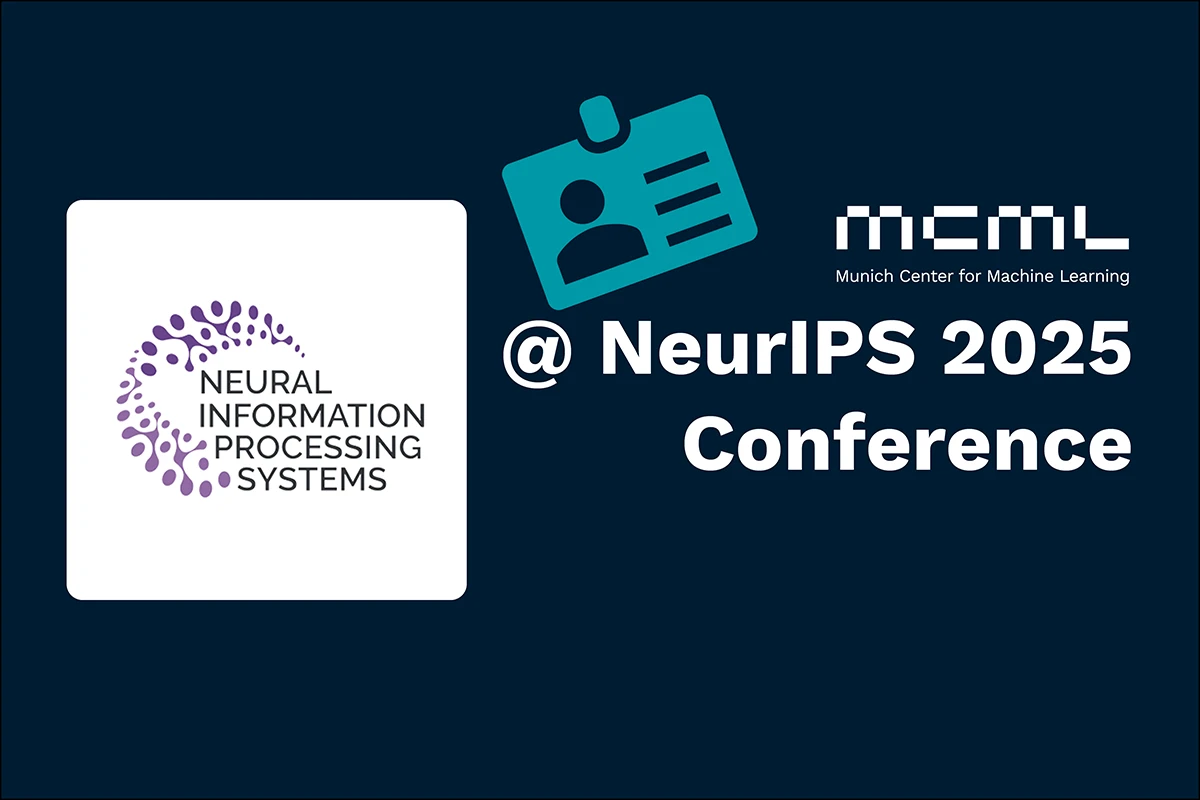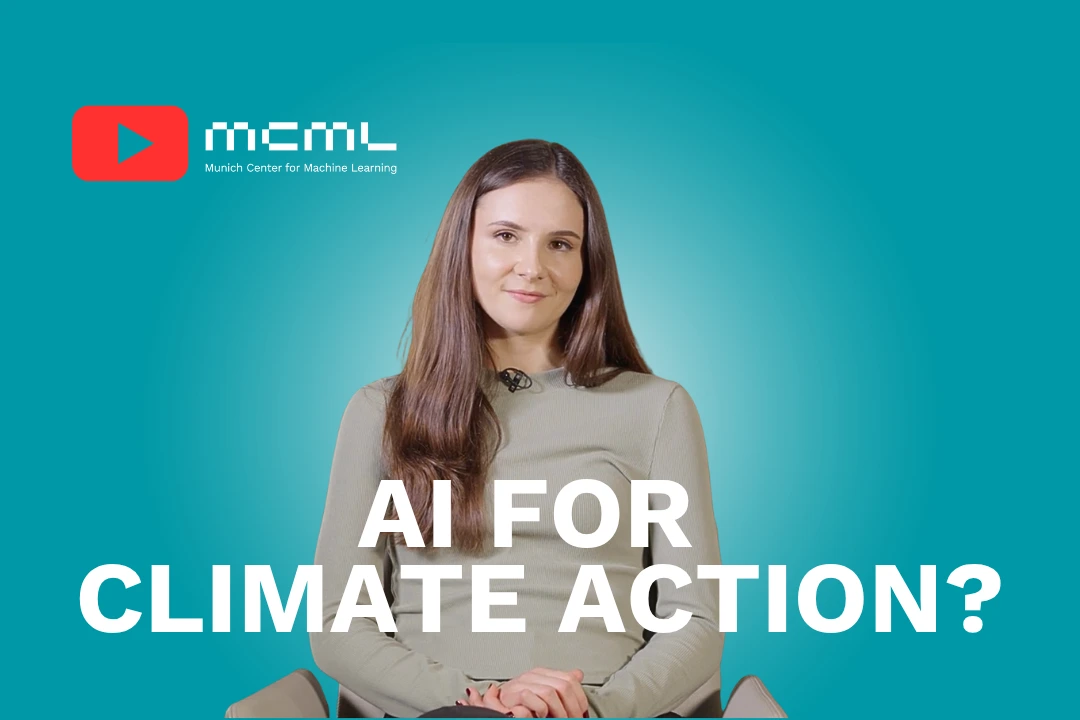Research Group Stefan Feuerriegel
Stefan Feuerriegel
is the Head of the Institute of Artificial Intelligence (AI) in Management at LMU Munich.
His research focuses on developing AI algorithms to support data-driven decision-making for businesses and public organizations. He is also dedicated to advancing ‘AI for good’, aiming to create positive social impact through responsible and ethical AI applications.
Team members @MCML
PhD Students
Recent News @MCML
Publications @MCML
2026
[118]

R. Ma • D. Geissler • S. Feuerriegel • T. Lauinger • D. McCoy • P. Wisniewski
Analyzing Social Media Claims regarding Youth Online Safety Features to Identify Problem Areas and Communication Gaps.
CSCW 2026 - 29th ACM SIGCHI Conference on Computer-Supported Cooperative Work and Social Computing. Salt Lake City, UT, USA, Oct 10-14, 2026. To be published. Preprint available. arXiv
Analyzing Social Media Claims regarding Youth Online Safety Features to Identify Problem Areas and Communication Gaps.
CSCW 2026 - 29th ACM SIGCHI Conference on Computer-Supported Cooperative Work and Social Computing. Salt Lake City, UT, USA, Oct 10-14, 2026. To be published. Preprint available. arXiv
[117]

V. Melnychuk • D. Frauen • J. Schweisthal • S. Feuerriegel
Orthogonal Representation Learning for Estimating Causal Quantities.
AISTATS 2026 - 29th International Conference on Artificial Intelligence and Statistics. Tangier, Morocco, May 02-05, 2026. To be published. Preprint available. arXiv
Orthogonal Representation Learning for Estimating Causal Quantities.
AISTATS 2026 - 29th International Conference on Artificial Intelligence and Statistics. Tangier, Morocco, May 02-05, 2026. To be published. Preprint available. arXiv
[116]

K. Hess • D. Frauen • V. Melnychuk • S. Feuerriegel
IGC-Net for conditional average potential outcome estimation over time.
ICLR 2026 - 14th International Conference on Learning Representations. Rio de Janeiro, Brazil, Apr 23-27, 2026. To be published. Preprint available. URL
IGC-Net for conditional average potential outcome estimation over time.
ICLR 2026 - 14th International Conference on Learning Representations. Rio de Janeiro, Brazil, Apr 23-27, 2026. To be published. Preprint available. URL
[115]

D. Geissler • C. Robertson • S. Feuerriegel
Digital literacy interventions can boost humans in discerning deepfakes.
CHI 2026 - ACM CHI Conference on Human Factors in Computing Systems. Barcelona, Spain, Apr 13-17, 2026. To be published. Preprint available. arXiv
Digital literacy interventions can boost humans in discerning deepfakes.
CHI 2026 - ACM CHI Conference on Human Factors in Computing Systems. Barcelona, Spain, Apr 13-17, 2026. To be published. Preprint available. arXiv
[114]

S. Maier • M. Schneider • S. Feuerriegel
Partnering with Generative AI: Experimental Evaluation of Human-Led and Model-Led Interaction in Human-AI Co-Creation.
CHI 2026 - ACM CHI Conference on Human Factors in Computing Systems. Barcelona, Spain, Apr 13-17, 2026. To be published. Preprint available. arXiv
Partnering with Generative AI: Experimental Evaluation of Human-Led and Model-Led Interaction in Human-AI Co-Creation.
CHI 2026 - ACM CHI Conference on Human Factors in Computing Systems. Barcelona, Spain, Apr 13-17, 2026. To be published. Preprint available. arXiv
[113]

M. Schimpf • S. Maier • A. Wyrowski • L. Christoforakos • S. Feuerriegel • T. Bohné
Supporting Effective Goal Setting with LLM-Based Chatbots.
CHI 2026 - ACM CHI Conference on Human Factors in Computing Systems. Barcelona, Spain, Apr 13-17, 2026. To be published. Preprint available. arXiv
Supporting Effective Goal Setting with LLM-Based Chatbots.
CHI 2026 - ACM CHI Conference on Human Factors in Computing Systems. Barcelona, Spain, Apr 13-17, 2026. To be published. Preprint available. arXiv
[112]
H. Arno • D. Frauen • E. Javurek • T. Demeester • S. Feuerriegel
Rank-Learner: Orthogonal Ranking of Treatment Effects.
Preprint (Feb. 2026). arXiv
Rank-Learner: Orthogonal Ranking of Treatment Effects.
Preprint (Feb. 2026). arXiv
[111]
Y. Huang • Z. Jiang • Y. Ma • Y. Jiang • X. Wang • Y. Zhou • Y. Hao • K. Guo • P.-Y. Chen • S. Feuerriegel • X. Zhang
ProbeLLM: Automating Principled Diagnosis of LLM Failures.
Preprint (Feb. 2026). arXiv
ProbeLLM: Automating Principled Diagnosis of LLM Failures.
Preprint (Feb. 2026). arXiv
[110]
Y. Ma • Y. Huang • W. Wang • X. Luo • X. Zhang • S. Feuerriegel
Synthetic Interaction Data for Scalable Personalization in Large Language Models.
Preprint (Feb. 2026). arXiv
Synthetic Interaction Data for Scalable Personalization in Large Language Models.
Preprint (Feb. 2026). arXiv
[109]
M. Schröder • M. Oprescu • S. Feuerriegel • N. Kallus
Causal Inference on Networks under Misspecified Exposure Mappings: A Partial Identification Framework.
Preprint (Feb. 2026). arXiv
Causal Inference on Networks under Misspecified Exposure Mappings: A Partial Identification Framework.
Preprint (Feb. 2026). arXiv
[108]
Y. Wang • D. Frauen • E. Javurek • K. Hess • Y. Ma • S. Feuerriegel
Targeted Synthetic Control Method.
Preprint (Feb. 2026). arXiv
Targeted Synthetic Control Method.
Preprint (Feb. 2026). arXiv
[107]
D. Frauen • A. Deviyani • M. van der Schaar • S. Feuerriegel
Nonparametric LLM Evaluation from Preference Data.
Preprint (Jan. 2026). arXiv
Nonparametric LLM Evaluation from Preference Data.
Preprint (Jan. 2026). arXiv
[106]
A. Maarouf • A. Bakiaj • S. Feuerriegel
Predicting Startup Success Using Large Language Models: A Novel In-Context Learning Approach.
Preprint (Jan. 2026). arXiv
Predicting Startup Success Using Large Language Models: A Novel In-Context Learning Approach.
Preprint (Jan. 2026). arXiv
2025
[105]

L. Hölbling • S. Maier • S. Feuerriegel
A Meta-Analysis of the Persuasive Power of Large Language Models.
Scientific Reports. Dec. 2025. Early Access. DOI
A Meta-Analysis of the Persuasive Power of Large Language Models.
Scientific Reports. Dec. 2025. Early Access. DOI
[104]
I. Tretow • M. Schwebel • S. Feuerriegel • T. Treffers • I. M. Welpe
The Effect of LLM Assistance on Diagnostic Accuracy: A Meta-Analysis.
Preprint (Dec. 2025). DOI
The Effect of LLM Assistance on Diagnostic Accuracy: A Meta-Analysis.
Preprint (Dec. 2025). DOI
[103]
Y. Wang • D. Frauen • J. Schweisthal • M. Schröder • S. Feuerriegel
How reliable are treatment effects in clinical trials with dropout?
CauScien @NeurIPS 2025 - Workshop on Uncovering Causality in Science at the 39th Conference on Neural Information Processing Systems. San Diego, CA, USA, Nov 30-Dec 07, 2025. To be published. Preprint available. URL
How reliable are treatment effects in clinical trials with dropout?
CauScien @NeurIPS 2025 - Workshop on Uncovering Causality in Science at the 39th Conference on Neural Information Processing Systems. San Diego, CA, USA, Nov 30-Dec 07, 2025. To be published. Preprint available. URL
[102]

H. Amad • Z. Qian • D. Frauen • J. Piskorz • S. Feuerriegel • M. van der Schaar
Improving the Generation and Evaluation of Synthetic Data for Downstream Medical Causal Inference.
NeurIPS 2025 - 39th Conference on Neural Information Processing Systems. San Diego, CA, USA, Nov 30-Dec 07, 2025. To be published. Preprint available. URL
Improving the Generation and Evaluation of Synthetic Data for Downstream Medical Causal Inference.
NeurIPS 2025 - 39th Conference on Neural Information Processing Systems. San Diego, CA, USA, Nov 30-Dec 07, 2025. To be published. Preprint available. URL
[101]

D. Frauen • V. Melnychuk • J. Schweisthal • M. van der Schaar • S. Feuerriegel
Treatment Effect Estimation for Optimal Decision-Making.
NeurIPS 2025 - 39th Conference on Neural Information Processing Systems. San Diego, CA, USA, Nov 30-Dec 07, 2025. To be published. Preprint available. URL
Treatment Effect Estimation for Optimal Decision-Making.
NeurIPS 2025 - 39th Conference on Neural Information Processing Systems. San Diego, CA, USA, Nov 30-Dec 07, 2025. To be published. Preprint available. URL
[100]

D. Frauen • M. Schröder • K. Heß • S. Feuerriegel
Orthogonal Survival Learners for Estimating Heterogeneous Treatment Effects from Time-to-Event Data.
NeurIPS 2025 - 39th Conference on Neural Information Processing Systems. San Diego, CA, USA, Nov 30-Dec 07, 2025. To be published. Preprint available. URL
Orthogonal Survival Learners for Estimating Heterogeneous Treatment Effects from Time-to-Event Data.
NeurIPS 2025 - 39th Conference on Neural Information Processing Systems. San Diego, CA, USA, Nov 30-Dec 07, 2025. To be published. Preprint available. URL
[99]

Y. Ma • D. Frauen • J. Schweisthal • S. Feuerriegel
LLM-Driven Treatment Effect Estimation Under Inference Time Text Confounding.
NeurIPS 2025 - 39th Conference on Neural Information Processing Systems. San Diego, CA, USA, Nov 30-Dec 07, 2025. To be published. Preprint available. arXiv
LLM-Driven Treatment Effect Estimation Under Inference Time Text Confounding.
NeurIPS 2025 - 39th Conference on Neural Information Processing Systems. San Diego, CA, USA, Nov 30-Dec 07, 2025. To be published. Preprint available. arXiv
[98]

Y. Ozyurt • T. Almaci • S. Feuerriegel • M. Sachan
Personalized Exercise Recommendation with Semantically-Grounded Knowledge Tracing.
NeurIPS 2025 - 39th Conference on Neural Information Processing Systems. San Diego, CA, USA, Nov 30-Dec 07, 2025. To be published. Preprint available. URL
Personalized Exercise Recommendation with Semantically-Grounded Knowledge Tracing.
NeurIPS 2025 - 39th Conference on Neural Information Processing Systems. San Diego, CA, USA, Nov 30-Dec 07, 2025. To be published. Preprint available. URL
[97]

M. Schröder • D. Frauen • J. Schweisthal • K. Heß • V. Melnychuk • S. Feuerriegel
Conformal Prediction for Causal Effects of Continuous Treatments.
NeurIPS 2025 - 39th Conference on Neural Information Processing Systems. San Diego, CA, USA, Nov 30-Dec 07, 2025. To be published. Preprint available. URL
Conformal Prediction for Causal Effects of Continuous Treatments.
NeurIPS 2025 - 39th Conference on Neural Information Processing Systems. San Diego, CA, USA, Nov 30-Dec 07, 2025. To be published. Preprint available. URL
[96]

V. Lehmann • M. Hilpert • Z. Mostaani • S. Hovsepyan • E. Wallace • C. Verzat • S. Feuerriegel • M. Kraus • J. Rosenthal • G. Yilmaz • M. M. Doss • C. Stettler
Listening to Hypoglycemia: Voice as a Biomarker for Detection of a Medical Emergency Using Machine Learning.
Diabetes Care 49.1. Nov. 2025. DOI
Listening to Hypoglycemia: Voice as a Biomarker for Detection of a Medical Emergency Using Machine Learning.
Diabetes Care 49.1. Nov. 2025. DOI
[95]

N. Krueger • S. Schallmoser • R. Desai • S. Wang • H. Schunkert • T. Dreischulte • Schneeweiss • A. Kastrati • S. Feuerriegel
Predicting individualized treatment effects of prasugrel vs ticagrelor for acute coronary syndrome: a post hoc analysis of a randomized clinical trial.
European Heart Journal 46.Supplement 1. Nov. 2025. URL
Predicting individualized treatment effects of prasugrel vs ticagrelor for acute coronary syndrome: a post hoc analysis of a randomized clinical trial.
European Heart Journal 46.Supplement 1. Nov. 2025. URL
[94]
S. Feuerriegel • A. Maarouf • S. Demir • M. Weinmann
Analyzing heterogeneity in the effects of behavioral climate interventions on individual beliefs across sociodemographics, attitudes, and norms.
Preprint (Nov. 2025). DOI
Analyzing heterogeneity in the effects of behavioral climate interventions on individual beliefs across sociodemographics, attitudes, and norms.
Preprint (Nov. 2025). DOI
[93]
H. Ma • D. Frauen • S. Feuerriegel
DeepBlip: Estimating Conditional Average Treatment Effects Over Time.
Preprint (Nov. 2025). arXiv
DeepBlip: Estimating Conditional Average Treatment Effects Over Time.
Preprint (Nov. 2025). arXiv
[92]
C. Naumzik • A. Maarouf • S. Feuerriegel • M. Weinmann
Beyond Means: A Dynamic Framework for Predicting Customer Satisfaction.
Preprint (Nov. 2025). arXiv
Beyond Means: A Dynamic Framework for Predicting Customer Satisfaction.
Preprint (Nov. 2025). arXiv
[91]

Z. Jonassen • K. Lawrence • B. M. Wiesenfeld • S. Feuerriegel • D. Mann
A qualitative analysis of remote patient monitoring: how a paradox mindset can support balancing emotional tensions in the design of healthcare technologies.
CSCW 2025 - 28th ACM SIGCHI Conference on Computer-Supported Cooperative Work and Social Computing. Bergen, Norway, Oct 18-22, 2025. To be published. Preprint available. DOI
A qualitative analysis of remote patient monitoring: how a paradox mindset can support balancing emotional tensions in the design of healthcare technologies.
CSCW 2025 - 28th ACM SIGCHI Conference on Computer-Supported Cooperative Work and Social Computing. Bergen, Norway, Oct 18-22, 2025. To be published. Preprint available. DOI
[90]

L. Skapetze • D. Koller • A. Zwergal • S. Feuerriegel • A. Rubinski • E. Grill
Monitoring changes in vitamin D levels during the COVID-19 pandemic with routinely-collected laboratory data.
Nature Communications 16.8772. Oct. 2025. DOI
Monitoring changes in vitamin D levels during the COVID-19 pandemic with routinely-collected laboratory data.
Nature Communications 16.8772. Oct. 2025. DOI
[89]
E. Javurek • V. Melnychuk • J. Schweisthal • K. Heß • D. Frauen • S. Feuerriegel
An Orthogonal Learner for Individualized Outcomes in Markov Decision Processes.
Preprint (Oct. 2025). arXiv
An Orthogonal Learner for Individualized Outcomes in Markov Decision Processes.
Preprint (Oct. 2025). arXiv
[88]
A. Khot • M. Oprescu • M. Schröder • A. Kagawa • X. Luo
Spatial Deconfounder: Interference-Aware Deconfounding for Spatial Causal Inference.
Preprint (Oct. 2025). arXiv
Spatial Deconfounder: Interference-Aware Deconfounding for Spatial Causal Inference.
Preprint (Oct. 2025). arXiv
[87]
M. Kosmas • A.-S. Mayer • S. Feuerriegel • F. Bodendorf
From Code to Culture: Aligning Large Language Models with Corporate Values.
Preprint (Oct. 2025). DOI
From Code to Culture: Aligning Large Language Models with Corporate Values.
Preprint (Oct. 2025). DOI
[86]
A. Maarouf • K. T. Greene • J. N. Shapiro • S. Feuerriegel • M. H. Ribeiro
Short-Form Video Platforms Drive Mobile Usage.
Preprint (Oct. 2025). DOI
Short-Form Video Platforms Drive Mobile Usage.
Preprint (Oct. 2025). DOI
[85]
Y. Wang • D. Frauen • J. Schweisthal • M. Schröder • S. Feuerriegel
Assessing the robustness of heterogeneous treatment effects in survival analysis under informative censoring.
Preprint (Oct. 2025). arXiv
Assessing the robustness of heterogeneous treatment effects in survival analysis under informative censoring.
Preprint (Oct. 2025). arXiv
[84]
M. Brockschmidt • M. Schröder • S. Feuerriegel
SurvDiff: A Diffusion Model for Generating Synthetic Data in Survival Analysis.
Preprint (Sep. 2025). arXiv
SurvDiff: A Diffusion Model for Generating Synthetic Data in Survival Analysis.
Preprint (Sep. 2025). arXiv
[83]
L. Hölbling • S. Maier • S. Feuerriegel
The Persuasive Power of LLMs: A Systematic Literature Review and Meta-Analysis.
Preprint (Sep. 2025). DOI
The Persuasive Power of LLMs: A Systematic Literature Review and Meta-Analysis.
Preprint (Sep. 2025). DOI
[82]
V. Melnychuk • S. Feuerriegel
GDR-learners: Orthogonal Learning of Generative Models for Potential Outcomes.
Preprint (Sep. 2025). arXiv
GDR-learners: Orthogonal Learning of Generative Models for Potential Outcomes.
Preprint (Sep. 2025). arXiv
[81]
V. Melnychuk • D. Frauen • J. Schweisthal • S. Feuerriegel
Overlap-Adaptive Regularization for Conditional Average Treatment Effect Estimation.
Preprint (Sep. 2025). arXiv
Overlap-Adaptive Regularization for Conditional Average Treatment Effect Estimation.
Preprint (Sep. 2025). arXiv
[80]
J. Persson • S. Feuerriegel • C. Kadar
Learning from Editorial Decisions: Optimizing Audience-Wide Content Promotions with Causal Machine Learning.
Preprint (Sep. 2025). DOI
Learning from Editorial Decisions: Optimizing Audience-Wide Content Promotions with Causal Machine Learning.
Preprint (Sep. 2025). DOI
[79]
H. Tenzer • O. Abidi • S. Feuerriegel
Designing LLMs for cultural sensitivity: Evidence from English-Japanese translation.
Preprint (Sep. 2025). arXiv
Designing LLMs for cultural sensitivity: Evidence from English-Japanese translation.
Preprint (Sep. 2025). arXiv
[78]

Y. Ma • J. Schweisthal • H. Zhang • S. Feuerriegel
A Diffusion-Based Method for Learning the Multi-Outcome Distribution of Medical Treatments.
KDD 2025 - 31st ACM SIGKDD International Conference on Knowledge Discovery and Data Mining. Toronto, ON, Canada, Aug 03-07, 2025. DOI
A Diffusion-Based Method for Learning the Multi-Outcome Distribution of Medical Treatments.
KDD 2025 - 31st ACM SIGKDD International Conference on Knowledge Discovery and Data Mining. Toronto, ON, Canada, Aug 03-07, 2025. DOI
[77]
P. Spitzer • D. Hendriks • J. Rudolph • S. Schläger • J. Ricke • N. Kühl • B. F. Hoppe • S. Feuerriegel
The effect of medical explanations from large language models on diagnostic accuracy in radiology.
Preprint (Aug. 2025). DOI
The effect of medical explanations from large language models on diagnostic accuracy in radiology.
Preprint (Aug. 2025). DOI
[76]
D. Bär
Computational approaches to enhance the integrity of social media: from detection to intervention.
Dissertation LMU München. Jul. 2025. DOI
Computational approaches to enhance the integrity of social media: from detection to intervention.
Dissertation LMU München. Jul. 2025. DOI
[75]

J. Schweisthal • D. Frauen • M. Schröder • K. Heß • N. Kilbertus • S. Feuerriegel
Learning Representations of Instruments for Partial Identification of Treatment Effects.
ICML 2025 - 42nd International Conference on Machine Learning. Vancouver, Canada, Jul 13-19, 2025. URL
Learning Representations of Instruments for Partial Identification of Treatment Effects.
ICML 2025 - 42nd International Conference on Machine Learning. Vancouver, Canada, Jul 13-19, 2025. URL
[74]
D. Geissler • A. Maarouf • D. Bär • N. Pröllochs • S. Feuerriegel
A comment on 'A 2 million-person, campaign-wide field experiment shows how digital advertising affects voter turnout'.
I4R Discussion Paper Series.237. Jul. 2025. URL
A comment on 'A 2 million-person, campaign-wide field experiment shows how digital advertising affects voter turnout'.
I4R Discussion Paper Series.237. Jul. 2025. URL
[73]
J. Weberpals • S. Feuerriegel • M. van der Schaar • K. L. Kehl
Opportunities for Causal Machine Learning in Precision Oncology.
NEJM AI 2.8. Jul. 2025. DOI
Opportunities for Causal Machine Learning in Precision Oncology.
NEJM AI 2.8. Jul. 2025. DOI
[72]
D. Geissler • C. Robertson • S. Feuerriegel
Designing Effective Digital Literacy Interventions for Boosting Deepfake Discernment.
Preprint (Jul. 2025). arXiv
Designing Effective Digital Literacy Interventions for Boosting Deepfake Discernment.
Preprint (Jul. 2025). arXiv
[71]
Y. Ma • D. Frauen • E. Javurek • S. Feuerriegel
Foundation Models for Causal Inference via Prior-Data Fitted Networks.
Preprint (Jun. 2025). arXiv
Foundation Models for Causal Inference via Prior-Data Fitted Networks.
Preprint (Jun. 2025). arXiv
[70]
S. Schallmoser • J. Schweisthal • A. von Ehr • H. Ghanbari • F. Schiefenhövel • T. S. Valley • J. Wiens • S. Feuerriegel
Causal machine learning for assessing the effectiveness of off-label use of amiodarone in new-onset atrial fibrillation.
Preprint (Jun. 2025). DOI
Causal machine learning for assessing the effectiveness of off-label use of amiodarone in new-onset atrial fibrillation.
Preprint (Jun. 2025). DOI
[69]
C. Kern • U. Fischer-Abaigar • J. Schweisthal • D. Frauen • R. Ghani • S. Feuerriegel • M. van der Schaar • F. Kreuter
Algorithms for reliable decision-making need causal reasoning.
Nature Computational Science 5. May. 2025. DOI
Algorithms for reliable decision-making need causal reasoning.
Nature Computational Science 5. May. 2025. DOI
[68]
N. Holzner • S. Maier • S. Feuerriegel
Generative AI and Creativity: A Systematic Literature Review and Meta-Analysis.
Preprint (May. 2025). arXiv
Generative AI and Creativity: A Systematic Literature Review and Meta-Analysis.
Preprint (May. 2025). arXiv
[67]
M. Schröder • J. Hartenstein • S. Feuerriegel
PrivATE: Differentially Private Confidence Intervals for Average Treatment Effects.
Preprint (May. 2025). arXiv
PrivATE: Differentially Private Confidence Intervals for Average Treatment Effects.
Preprint (May. 2025). arXiv
[66]

D. Geißler • A. Maarouf • S. Feuerriegel
Analyzing User Characteristics of Hate Speech Spreaders on Social Media.
WWW 2025 - ACM Web Conference. Sydney, Australia, Apr 28-May 02, 2025. DOI
Analyzing User Characteristics of Hate Speech Spreaders on Social Media.
WWW 2025 - ACM Web Conference. Sydney, Australia, Apr 28-May 02, 2025. DOI
[65]
K. Forster • V. Wagner • L. Keil • M. A. Müller • T. Sellhorn • S. Feuerriegel
Tracking ESG Disclosures of European Companies with Retrieval-Augmented Generation.
Climate Change AI @ICLR 2025 - Workshop on Tackling Climate Change with Machine Learning at the 13th International Conference on Learning Representations. Singapore, Apr 24-28, 2025. URL
Tracking ESG Disclosures of European Companies with Retrieval-Augmented Generation.
Climate Change AI @ICLR 2025 - Workshop on Tackling Climate Change with Machine Learning at the 13th International Conference on Learning Representations. Singapore, Apr 24-28, 2025. URL
[64]

D. Frauen • K. Heß • S. Feuerriegel
Model-agnostic meta-learners for estimating heterogeneous treatment effects over time.
ICLR 2025 - 13th International Conference on Learning Representations. Singapore, Apr 24-28, 2025. URL
Model-agnostic meta-learners for estimating heterogeneous treatment effects over time.
ICLR 2025 - 13th International Conference on Learning Representations. Singapore, Apr 24-28, 2025. URL
[63]

K. Heß • S. Feuerriegel
Stabilized Neural Prediction of Potential Outcomes in Continuous Time.
ICLR 2025 - 13th International Conference on Learning Representations. Singapore, Apr 24-28, 2025. URL
Stabilized Neural Prediction of Potential Outcomes in Continuous Time.
ICLR 2025 - 13th International Conference on Learning Representations. Singapore, Apr 24-28, 2025. URL
[62]

M. Schröder • V. Melnychuk • S. Feuerriegel
Differentially private learners for heterogeneous treatment effects.
ICLR 2025 - 13th International Conference on Learning Representations. Singapore, Apr 24-28, 2025. URL
Differentially private learners for heterogeneous treatment effects.
ICLR 2025 - 13th International Conference on Learning Representations. Singapore, Apr 24-28, 2025. URL
[61]

Y. Wang • M. Schröder • D. Frauen • J. Schweisthal • K. Heß • S. Feuerriegel
Constructing Confidence Intervals for Average Treatment Effects from Multiple Datasets.
ICLR 2025 - 13th International Conference on Learning Representations. Singapore, Apr 24-28, 2025. URL
Constructing Confidence Intervals for Average Treatment Effects from Multiple Datasets.
ICLR 2025 - 13th International Conference on Learning Representations. Singapore, Apr 24-28, 2025. URL
[60]

A. Maarouf • S. Feuerriegel • N. Pröllochs
A fused large language model for predicting startup success.
European Journal of Operational Research 322.1. Apr. 2025. DOI
A fused large language model for predicting startup success.
European Journal of Operational Research 322.1. Apr. 2025. DOI
[59]
D. Martens • G. Shmueli • T. Evgeniou • K. Bauer • C. Janiesch • S. Feuerriegel • S. Gabel • S. Goethals • T. Greene • N. Klein • M. Kraus • N. Kühl • C. Perlich • W. Verbeke • A. Zharova • P. Zschech • F. Provost
Beware of 'Explanations' of AI.
Preprint (Apr. 2025). arXiv
Beware of 'Explanations' of AI.
Preprint (Apr. 2025). arXiv
[58]
D. Bär • N. Pröllochs • S. Feuerriegel
The role of social media ads for election outcomes: Evidence from the 2021 German election.
PNAS Nexus.pgaf073. Mar. 2025. DOI
The role of social media ads for election outcomes: Evidence from the 2021 German election.
PNAS Nexus.pgaf073. Mar. 2025. DOI
[57]
P. Spitzer • D. Hendriks • J. Rudolph • S. Schläger • J. Ricke • N. Kühl • B. F. Hoppe • S. Feuerriegel
The effect of medical explanations from large language models on diagnostic decisions in radiology.
Preprint (Mar. 2025). DOI
The effect of medical explanations from large language models on diagnostic decisions in radiology.
Preprint (Mar. 2025). DOI
[56]

D. Tschernutter • S. Feuerriegel
Data-driven dynamic police patrolling: An efficient Monte Carlo tree search.
European Journal of Operational Research 321.1. Feb. 2025. DOI
Data-driven dynamic police patrolling: An efficient Monte Carlo tree search.
European Journal of Operational Research 321.1. Feb. 2025. DOI
[55]
S. Feuerriegel • A. Maarouf • D. Bär • D. Geißler • J. Schweisthal • N. Pröllochs • C. E. Robertson • S. Rathje • J. Hartmann • S. M. Mohammad • O. Netzer • A. A. Siegel • B. Plank • J. J. Van Bavel
Using natural language processing to analyse text data in behavioural science.
Nature Reviews Psychology 4. Feb. 2025. DOI
Using natural language processing to analyse text data in behavioural science.
Nature Reviews Psychology 4. Feb. 2025. DOI
[54]
K. Heß • D. Frauen • V. Melnychuk • S. Feuerriegel
Efficient and Sharp Off-Policy Learning under Unobserved Confounding.
Preprint (Feb. 2025). arXiv
Efficient and Sharp Off-Policy Learning under Unobserved Confounding.
Preprint (Feb. 2025). arXiv
[53]
K. Heß • D. Frauen • M. van der Schaar • S. Feuerriegel
Overlap-weighted orthogonal meta-learner for treatment effect estimation over time.
Preprint (Feb. 2025). arXiv
Overlap-weighted orthogonal meta-learner for treatment effect estimation over time.
Preprint (Feb. 2025). arXiv
[52]
Y. Feng • S. Feuerriegel • Y. R. Shrestha
Contextualizing Recommendation Explanations with LLMs: A User Study.
Preprint (Jan. 2025). arXiv
Contextualizing Recommendation Explanations with LLMs: A User Study.
Preprint (Jan. 2025). arXiv
2024
[51]

Y. Ma • V. Melnychuk • J. Schweisthal • S. Feuerriegel
DiffPO: A causal diffusion model for learning distributions of potential outcomes.
NeurIPS 2024 - 38th Conference on Neural Information Processing Systems. Vancouver, Canada, Dec 10-15, 2024. URL
DiffPO: A causal diffusion model for learning distributions of potential outcomes.
NeurIPS 2024 - 38th Conference on Neural Information Processing Systems. Vancouver, Canada, Dec 10-15, 2024. URL
[50]

V. Melnychuk • S. Feuerriegel • M. van der Schaar
Quantifying Aleatoric Uncertainty of the Treatment Effect: A Novel Orthogonal Learner.
NeurIPS 2024 - 38th Conference on Neural Information Processing Systems. Vancouver, Canada, Dec 10-15, 2024. URL
Quantifying Aleatoric Uncertainty of the Treatment Effect: A Novel Orthogonal Learner.
NeurIPS 2024 - 38th Conference on Neural Information Processing Systems. Vancouver, Canada, Dec 10-15, 2024. URL
[49]

J. Senoner • S. Schallmoser • B. Kratzwald • S. Feuerriegel • T. Netland
Explainable AI improves task performance in human–AI collaboration.
Scientific Reports 14.31150. Dec. 2024. DOI
Explainable AI improves task performance in human–AI collaboration.
Scientific Reports 14.31150. Dec. 2024. DOI
[48]

A. Bashardoust • S. Feuerriegel • Y. R. Shrestha
Comparing the Willingness to Share for Human-generated vs. AI-generated Fake News.
CSCW 2024 - 27th ACM SIGCHI Conference on Computer-Supported Cooperative Work and Social Computing. San José, Costa Rica, Nov 09-13, 2024. DOI
Comparing the Willingness to Share for Human-generated vs. AI-generated Fake News.
CSCW 2024 - 27th ACM SIGCHI Conference on Computer-Supported Cooperative Work and Social Computing. San José, Costa Rica, Nov 09-13, 2024. DOI
[47]

D. Geißler • S. Feuerriegel
Analyzing the Strategy of Propaganda using Inverse Reinforcement Learning: Evidence from the 2022 Russian Invasion of Ukraine.
CSCW 2024 - 27th ACM SIGCHI Conference on Computer-Supported Cooperative Work and Social Computing. San José, Costa Rica, Nov 09-13, 2024. DOI
Analyzing the Strategy of Propaganda using Inverse Reinforcement Learning: Evidence from the 2022 Russian Invasion of Ukraine.
CSCW 2024 - 27th ACM SIGCHI Conference on Computer-Supported Cooperative Work and Social Computing. San José, Costa Rica, Nov 09-13, 2024. DOI
[46]

A. Maarouf • N. Pröllochs • S. Feuerriegel
The Virality of Hate Speech on Social Media.
CSCW 2024 - 27th ACM SIGCHI Conference on Computer-Supported Cooperative Work and Social Computing. San José, Costa Rica, Nov 09-13, 2024. DOI
The Virality of Hate Speech on Social Media.
CSCW 2024 - 27th ACM SIGCHI Conference on Computer-Supported Cooperative Work and Social Computing. San José, Costa Rica, Nov 09-13, 2024. DOI
[45]
D. Bär • A. Maarouf • S. Feuerriegel
Generative AI may backfire for counterspeech.
Preprint (Nov. 2024). arXiv
Generative AI may backfire for counterspeech.
Preprint (Nov. 2024). arXiv
[44]
P. Janetzky • T. Schlagenhauf • S. Feuerriegel
Slowing Down Forgetting in Continual Learning.
Preprint (Nov. 2024). arXiv
Slowing Down Forgetting in Continual Learning.
Preprint (Nov. 2024). arXiv
[43]
Y. Ozyurt • S. Feuerriegel • M. Sachan
Automated Knowledge Concept Annotation and Question Representation Learning for Knowledge Tracing.
Preprint (Oct. 2024). arXiv
Automated Knowledge Concept Annotation and Question Representation Learning for Knowledge Tracing.
Preprint (Oct. 2024). arXiv
[42]
Y. Ozyurt • S. Feuerriegel • C. Zhang
Document-Level In-Context Few-Shot Relation Extraction via Pre-Trained Language Models.
Preprint (Oct. 2024). arXiv
Document-Level In-Context Few-Shot Relation Extraction via Pre-Trained Language Models.
Preprint (Oct. 2024). arXiv
[41]
D. Tschernutter • M. Kraus • S. Feuerriegel
A Globally Convergent Algorithm for Neural Network Parameter Optimization Based on Difference-of-Convex Functions.
Transactions on Machine Learning Research. Sep. 2024. URL
A Globally Convergent Algorithm for Neural Network Parameter Optimization Based on Difference-of-Convex Functions.
Transactions on Machine Learning Research. Sep. 2024. URL
[40]
A. Bashardoust • Y. Feng • D. Geißler • S. Feuerriegel • Y. R. Shrestha
The Effect of Education in Prompt Engineering: Evidence from Journalists.
Preprint (Sep. 2024). arXiv
The Effect of Education in Prompt Engineering: Evidence from Journalists.
Preprint (Sep. 2024). arXiv
[39]

M. Kuzmanovic • D. Frauen • T. Hatt • S. Feuerriegel
Causal Machine Learning for Cost-Effective Allocation of Development Aid.
KDD 2024 - 30th ACM SIGKDD International Conference on Knowledge Discovery and Data Mining. Barcelona, Spain, Aug 25-29, 2024. DOI
Causal Machine Learning for Cost-Effective Allocation of Development Aid.
KDD 2024 - 30th ACM SIGKDD International Conference on Knowledge Discovery and Data Mining. Barcelona, Spain, Aug 25-29, 2024. DOI
[38]
A. Maarouf • D. Bär • D. Geißler • S. Feuerriegel
HQP: A human-annotated dataset for detecting online propaganda.
Findings @ACL 2024 - Findings of the 62nd Annual Meeting of the Association for Computational Linguistics. Bangkok, Thailand, Aug 11-16, 2024. DOI
HQP: A human-annotated dataset for detecting online propaganda.
Findings @ACL 2024 - Findings of the 62nd Annual Meeting of the Association for Computational Linguistics. Bangkok, Thailand, Aug 11-16, 2024. DOI
[37]

D. Frauen • V. Melnychuk • S. Feuerriegel
Fair Off-Policy Learning from Observational Data.
ICML 2024 - 41st International Conference on Machine Learning. Vienna, Austria, Jul 21-27, 2024. URL
Fair Off-Policy Learning from Observational Data.
ICML 2024 - 41st International Conference on Machine Learning. Vienna, Austria, Jul 21-27, 2024. URL
[36]

J. Schweisthal • D. Frauen • M. Van der Schaar • S. Feuerriegel
Meta-Learners for Partially-Identified Treatment Effects Across Multiple Environments.
ICML 2024 - 41st International Conference on Machine Learning. Vienna, Austria, Jul 21-27, 2024. URL
Meta-Learners for Partially-Identified Treatment Effects Across Multiple Environments.
ICML 2024 - 41st International Conference on Machine Learning. Vienna, Austria, Jul 21-27, 2024. URL
[35]
C. F. Naumzik • A. Kongsted • W. Vach • S. Feuerriegel
Data-driven subgrouping of patient trajectories with chronic diseases: Evidence from low back pain.
CHIL 2024 - 5th AHLI Conference on Health, Inference, and Learning . New York City, NY, USA, Jun 27-28, 2024. URL
Data-driven subgrouping of patient trajectories with chronic diseases: Evidence from low back pain.
CHIL 2024 - 5th AHLI Conference on Health, Inference, and Learning . New York City, NY, USA, Jun 27-28, 2024. URL
[34]
D. Bär • F. Pierri • G. De Francisci Morales • S. Feuerriegel
Systematic discrepancies in the delivery of political ads on facebook and instagram.
PNAS Nexus.pgae247. Jun. 2024. DOI
Systematic discrepancies in the delivery of political ads on facebook and instagram.
PNAS Nexus.pgae247. Jun. 2024. DOI
[33]
B. Felderer • L. Repke • W. Weber • J. Schweisthal • L. Bothmann
Predicting the Validity and Reliability of Survey Questions.
Preprint (Jun. 2024). DOI
Predicting the Validity and Reliability of Survey Questions.
Preprint (Jun. 2024). DOI
[32]

D. Frauen • F. Imrie • A. Curth • V. Melnychuk • S. Feuerriegel • M. van der Schaar
A Neural Framework for Generalized Causal Sensitivity Analysis.
ICLR 2024 - 12th International Conference on Learning Representations. Vienna, Austria, May 07-11, 2024. URL
A Neural Framework for Generalized Causal Sensitivity Analysis.
ICLR 2024 - 12th International Conference on Learning Representations. Vienna, Austria, May 07-11, 2024. URL
[31]

K. Heß • V. Melnychuk • D. Frauen • S. Feuerriegel
Bayesian Neural Controlled Differential Equations for Treatment Effect Estimation.
ICLR 2024 - 12th International Conference on Learning Representations. Vienna, Austria, May 07-11, 2024. URL
Bayesian Neural Controlled Differential Equations for Treatment Effect Estimation.
ICLR 2024 - 12th International Conference on Learning Representations. Vienna, Austria, May 07-11, 2024. URL
[30]

V. Melnychuk • D. Frauen • S. Feuerriegel
Bounds on Representation-Induced Confounding Bias for Treatment Effect Estimation.
ICLR 2024 - 12th International Conference on Learning Representations. Vienna, Austria, May 07-11, 2024. URL
Bounds on Representation-Induced Confounding Bias for Treatment Effect Estimation.
ICLR 2024 - 12th International Conference on Learning Representations. Vienna, Austria, May 07-11, 2024. URL
[29]

M. Schröder • D. Frauen • S. Feuerriegel
Causal Fairness under Unobserved Confounding: A Neural Sensitivity Framework.
ICLR 2024 - 12th International Conference on Learning Representations. Vienna, Austria, May 07-11, 2024. URL
Causal Fairness under Unobserved Confounding: A Neural Sensitivity Framework.
ICLR 2024 - 12th International Conference on Learning Representations. Vienna, Austria, May 07-11, 2024. URL
[28]
K. Heß • D. Frauen • V. Melnychuk • S. Feuerriegel
G-Transformer for Conditional Average Potential Outcome Estimation over Time.
Preprint (May. 2024). arXiv
G-Transformer for Conditional Average Potential Outcome Estimation over Time.
Preprint (May. 2024). arXiv
[27]

S. Feuerriegel • D. Frauen • V. Melnychuk • J. Schweisthal • K. Heß • A. Curth • S. Bauer • N. Kilbertus • I. S. Kohane • M. van der Schaar
Causal machine learning for predicting treatment outcomes.
Nature Medicine 30. Apr. 2024. DOI
Causal machine learning for predicting treatment outcomes.
Nature Medicine 30. Apr. 2024. DOI
[26]

M. Maritsch • S. Föll • V. Lehmann • N. Styger • C. Bérubé • M. Kraus • S. Feuerriegel • T. Kowatsch • T. Züger • E. Fleisch • F. Wortmann • C. Stettler
Smartwatches for non-invasive hypoglycaemia detection during cognitive and psychomotor stress.
Diabetes, Obesity and Metabolism 26.3. Mar. 2024. DOI
Smartwatches for non-invasive hypoglycaemia detection during cognitive and psychomotor stress.
Diabetes, Obesity and Metabolism 26.3. Mar. 2024. DOI
[25]
S. Feuerriegel • J. Hartmann • C. Janiesch • P. Zschech
Generative AI.
Business and Information Systems Engineering 66.1. Feb. 2024. DOI
Generative AI.
Business and Information Systems Engineering 66.1. Feb. 2024. DOI
[24]
V. Lehmann • T. Zueger • M. Maritsch • M. Notter • S. Schallmoser • C. Bérubé • C. Albrecht • M. Kraus • S. Feuerriegel • E. Fleisch • T. Kowatsch • S. Lagger • M. Laimer • F. Wortmann • C. Stettler
Machine Learning to Infer a Health State Using Biomedical Signals - Detection of Hypoglycemia in People with Diabetes while Driving Real Cars.
NEJM AI. Jan. 2024. DOI
Machine Learning to Infer a Health State Using Biomedical Signals - Detection of Hypoglycemia in People with Diabetes while Driving Real Cars.
NEJM AI. Jan. 2024. DOI
2023
[23]
M. von Zahn • O. Hinz • S. Feuerriegel
Locating disparities in machine learning.
IEEE BigData 2023 - IEEE International Conference on Big Data. Sorrento, Italy, Dec 15-18, 2023. DOI
Locating disparities in machine learning.
IEEE BigData 2023 - IEEE International Conference on Big Data. Sorrento, Italy, Dec 15-18, 2023. DOI
[22]

D. Frauen • V. Melnychuk • S. Feuerriegel
Sharp Bounds for Generalized Causal Sensitivity Analysis.
NeurIPS 2023 - 37th Conference on Neural Information Processing Systems. New Orleans, LA, USA, Dec 10-16, 2023. URL
Sharp Bounds for Generalized Causal Sensitivity Analysis.
NeurIPS 2023 - 37th Conference on Neural Information Processing Systems. New Orleans, LA, USA, Dec 10-16, 2023. URL
[21]

V. Melnychuk • D. Frauen • S. Feuerriegel
Partial Counterfactual Identification of Continuous Outcomes with a Curvature Sensitivity Model.
NeurIPS 2023 - 37th Conference on Neural Information Processing Systems. New Orleans, LA, USA, Dec 10-16, 2023. URL
Partial Counterfactual Identification of Continuous Outcomes with a Curvature Sensitivity Model.
NeurIPS 2023 - 37th Conference on Neural Information Processing Systems. New Orleans, LA, USA, Dec 10-16, 2023. URL
[20]

J. Schweisthal • D. Frauen • V. Melnychuk • S. Feuerriegel
Reliable Off-Policy Learning for Dosage Combinations.
NeurIPS 2023 - 37th Conference on Neural Information Processing Systems. New Orleans, LA, USA, Dec 10-16, 2023. URL
Reliable Off-Policy Learning for Dosage Combinations.
NeurIPS 2023 - 37th Conference on Neural Information Processing Systems. New Orleans, LA, USA, Dec 10-16, 2023. URL
[19]
D. Geißler • D. Bär • N. Pröllochs • S. Feuerriegel
Russian propaganda on social media during the 2022 invasion of Ukraine.
EPJ Data Science. Dec. 2023. DOI
Russian propaganda on social media during the 2022 invasion of Ukraine.
EPJ Data Science. Dec. 2023. DOI
[18]

J. Rausch • G. Rashiti • M. Gusev • C. Zhang • S. Feuerriegel
DSG: An End-to-End Document Structure Generator.
ICDM 2023 - 23rd IEEE International Conference on Data Mining. Shanghai, China, Dec 01-04, 2023. DOI
DSG: An End-to-End Document Structure Generator.
ICDM 2023 - 23rd IEEE International Conference on Data Mining. Shanghai, China, Dec 01-04, 2023. DOI
[17]

S. Feuerriegel • R. DiResta • J. A. Goldstein • S. Kumar • P. Lorenz-Spreen • M. Tomz • N. Pröllochs
Research can help to tackle AI-generated disinformation.
Nature Human Behaviour 7. Nov. 2023. DOI
Research can help to tackle AI-generated disinformation.
Nature Human Behaviour 7. Nov. 2023. DOI
[16]
Y. R. Shrestha • G. von Krogh • S. Feuerriegel
Building open-source AI.
Nature Computational Science 3.11. Oct. 2023. DOI
Building open-source AI.
Nature Computational Science 3.11. Oct. 2023. DOI
[15]
Y. Ma • D. Frauen • V. Melnychuk • S. Feuerriegel
Counterfactual Fairness for Predictions using Generative Adversarial Networks.
Preprint (Oct. 2023). arXiv
Counterfactual Fairness for Predictions using Generative Adversarial Networks.
Preprint (Oct. 2023). arXiv
[14]

D. Bär • N. Pröllochs • S. Feuerriegel
New Threats to Society from Free-Speech Social Media Platforms.
Communications of the ACM 66.10. Sep. 2023. DOI
New Threats to Society from Free-Speech Social Media Platforms.
Communications of the ACM 66.10. Sep. 2023. DOI
[13]

M. Toetzke • B. Probst • S. Feuerriegel
Leveraging large language models to monitor climate technology innovation.
Environmental Research Letters 18.9. Sep. 2023. DOI
Leveraging large language models to monitor climate technology innovation.
Environmental Research Letters 18.9. Sep. 2023. DOI
[12]

V. Melnychuk • D. Frauen • S. Feuerriegel
Normalizing Flows for Interventional Density Estimation.
ICML 2023 - 40th International Conference on Machine Learning. Honolulu, Hawaii, Jul 23-29, 2023. URL
Normalizing Flows for Interventional Density Estimation.
ICML 2023 - 40th International Conference on Machine Learning. Honolulu, Hawaii, Jul 23-29, 2023. URL
[11]
D. Bär • N. Pröllochs • S. Feuerriegel
Finding Qs: Profiling QAnon Supporters on Parler.
ICWSM 2023 - 17th International AAAI Conference on Web and Social Media. Limassol, Cyprus, Jun 05-08, 2023. DOI
Finding Qs: Profiling QAnon Supporters on Parler.
ICWSM 2023 - 17th International AAAI Conference on Web and Social Media. Limassol, Cyprus, Jun 05-08, 2023. DOI
[10]

D. Frauen • S. Feuerriegel
Estimating individual treatment effects under unobserved confounding using binary instruments.
ICLR 2023 - 11th International Conference on Learning Representations. Kigali, Rwanda, May 01-05, 2023. URL
Estimating individual treatment effects under unobserved confounding using binary instruments.
ICLR 2023 - 11th International Conference on Learning Representations. Kigali, Rwanda, May 01-05, 2023. URL
[9]
N. Banholzer • T. Mellan • H. J. T. Unwin • S. Feuerriegel • S. Mishra • S. Bhatt
A comparison of short-term probabilistic forecasts for the incidence of COVID-19 using mechanistic and statistical time series models.
Preprint (May. 2023). arXiv
A comparison of short-term probabilistic forecasts for the incidence of COVID-19 using mechanistic and statistical time series models.
Preprint (May. 2023). arXiv
[8]
D. Bär • F. Calderon • M. Lawlor • S. Licklederer • M. Totzauer • S. Feuerriegel
Analyzing Social Media Activities at Bellingcat.
WebSci 2023 - 15th ACM Web Science Conference 2023. Austin, TX, USA, Apr 30-May 01, 2023. DOI
Analyzing Social Media Activities at Bellingcat.
WebSci 2023 - 15th ACM Web Science Conference 2023. Austin, TX, USA, Apr 30-May 01, 2023. DOI
[7]

N. Pröllochs • S. Feuerriegel
Mechanisms of True and False Rumor Sharing in Social Media: Collective Intelligence or Herd Behavior?
CHI 2023 - ACM CHI Conference on Human Factors in Computing Systems. Hamburg, Germany, Apr 23-28, 2023. DOI
Mechanisms of True and False Rumor Sharing in Social Media: Collective Intelligence or Herd Behavior?
CHI 2023 - ACM CHI Conference on Human Factors in Computing Systems. Hamburg, Germany, Apr 23-28, 2023. DOI
[6]

D. Frauen • T. Hatt • V. Melnychuk • S. Feuerriegel
Estimating Average Causal Effects from Patient Trajectories.
AAAI 2023 - 37th Conference on Artificial Intelligence. Washington, DC, USA, Feb 07-14, 2023. DOI
Estimating Average Causal Effects from Patient Trajectories.
AAAI 2023 - 37th Conference on Artificial Intelligence. Washington, DC, USA, Feb 07-14, 2023. DOI
[5]

S. Schallmoser • T. Zueger • M. Kraus • M. Saar-Tsechansky • C. Stettler • S. Feuerriegel
Machine Learning for Predicting Micro- and Macrovascular Complications in Individuals With Prediabetes or Diabetes: Retrospective Cohort Study.
Journal of Medical Internet Research 25. Feb. 2023. DOI
Machine Learning for Predicting Micro- and Macrovascular Complications in Individuals With Prediabetes or Diabetes: Retrospective Cohort Study.
Journal of Medical Internet Research 25. Feb. 2023. DOI
2022
[4]
E. Dorigatti • J. Schweisthal • B. Bischl • M. Rezaei
Robust and Efficient Imbalanced Positive-Unlabeled Learning with Self-supervision.
Preprint (Sep. 2022). arXiv GitHub
Robust and Efficient Imbalanced Positive-Unlabeled Learning with Self-supervision.
Preprint (Sep. 2022). arXiv GitHub
2020
[3]
V. Melnychuk • E. Faerman • I. Manakov • T. Seidl
Matching the Clinical Reality: Accurate OCT-Based Diagnosis From Few Labels.
Workshop @CIKM 2020 - Workshop at the 29th ACM International Conference on Information and Knowledge Management. Galway, Ireland, Oct 19-23, 2020. PDF GitHub
Matching the Clinical Reality: Accurate OCT-Based Diagnosis From Few Labels.
Workshop @CIKM 2020 - Workshop at the 29th ACM International Conference on Information and Knowledge Management. Galway, Ireland, Oct 19-23, 2020. PDF GitHub
[2]

M. Berrendorf • E. Faerman • V. Melnychuk • V. Tresp • T. Seidl
Knowledge Graph Entity Alignment with Graph Convolutional Networks: Lessons Learned.
ECIR 2020 - 42nd European Conference on Information Retrieval. Virtual, Apr 14-17, 2020. DOI GitHub
Knowledge Graph Entity Alignment with Graph Convolutional Networks: Lessons Learned.
ECIR 2020 - 42nd European Conference on Information Retrieval. Virtual, Apr 14-17, 2020. DOI GitHub
[1]
D. Davletshina • V. Melnychuk • V. Tran • H. Singla • M. Berrendorf • E. Faerman • M. Fromm • M. Schubert
Unsupervised Anomaly Detection for X-Ray Images.
Preprint (Jan. 2020). arXiv GitHub
Unsupervised Anomaly Detection for X-Ray Images.
Preprint (Jan. 2020). arXiv GitHub
©all images: LMU | TUM

























